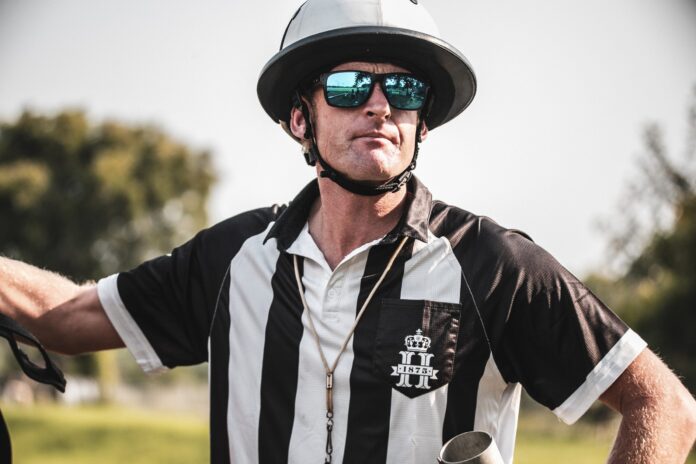Polo is a game with rules that are intended to create a framework for the game and protect the ponies. Polo rules are designed to allow players and their ponies to maximize their skills in a safe and fair environment.

The United States Polo Association (USPA) designates dangerous riding, including ride-offs that are in any manner deemed to be dangerous to either the horse or its rider, as not allowed and up to the discretion of the polo umpire. There are two polo game umpires on the field of play with a referee off the field, who arbitrate if the umpires are unable to come to a mutually agreeable decision.

Umpires in polo are the absolute game authorities from the time the match is scheduled to start till the time it concludes. The umpires and referees conduct the game, apply the rule of play and refer questions that could not be resolved on the field to the Committee. The other polo officials like the Timer, who is responsible for running the clock and giving notifications as required, the Scorer who is responsible for the scoring and statistics of the game and reports to the umpire, and the Goal Judges who are charged with signaling whether goals have been scored, are under the final authority of the polo Umpire and Referee.
Rulebook for a Polo Umpire
USPA has a code of officiating which is to be followed by professional polo umpires, out of which the ten most significant are: competency and integrity, excellent physical condition and projected positive image, a complete understanding of rules and interpretations, consistency on all calls and field presence and control over the field and players, which is essential. Furthermore, the umpire can only give 100 percent, and none if they are unsure. When making a call, they must always be decisive and announce the foul, penalty, and team color. The umpires in polo games are not to engage in any explanation of their decision or have any conversation with a player.

It is also important for the polo umpire to be precise in verbal communication on the field to reduce confusion and maintain calmness and professionalism at all times. Extending this to post-game interactions, where they must not engage in any arguments after the game.
Responsibilities of an umpire in Polo Games
Moreover, an umpire of polo who has been certified by the USPA is expected to display a certain level of work ethic and must have a checklist given by the association, which is to be tallied to ensure that all the tasks mentioned have been completed. There are different checklists like a Before Game Checklist and a Pre-Game review which the umpire must ensure by himself or through delegation. The Pre-Game review includes reviewing the rules, especially the procedural rules, and introducing themselves to the Club Tournament Committee, Club Manager, and any other club authorities that they may encounter. Other responsibilities within the checklist include identifying areas for spare horses, identifying the umpire enclosure or area away from the spectators and players, reviewing emergency procedures for players and mounts, and inspecting the ground crew like the Timer, Scorer, Goal Judges, and Referees. The umpires in polo are held accountable for their actions, by USPA, through the Umpire Performance Rating Sheet in which the team can fill in their grievances or the lack thereof with the umpire’s performance. So, chances are, all the famous polo umpires that we know and admire receive high ratings on this sheet. 
There are many ways one could train to become a famous polo umpire. The USPA has a professional training program called the USPA Umpire Programme where the Head Umpire Instructor manages the USPA Umpire Training and Certification Program. Before becoming an umpire, one should have prior comprehensive knowledge of the rules and an awareness of the approved procedures like emergency procedures and qualification of substitutes. A polo umpire must have good field judgment, which is the ability to think quickly in the saddle and react accurately, a characteristic exhibited by famous polo umpires, who continue honing their skills to perfection throughout the span of their career.





